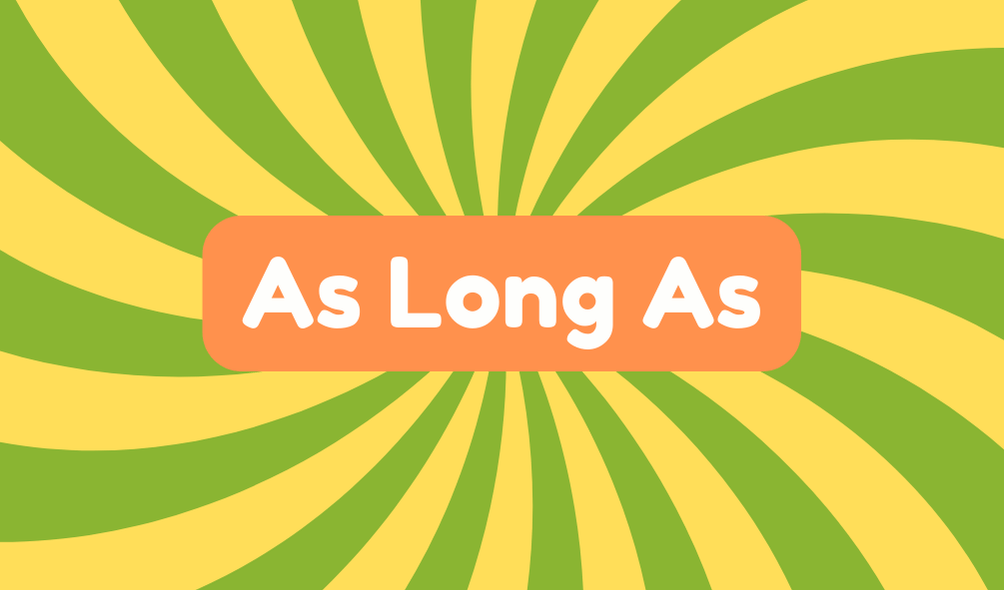The phrase "as long as" conveys conditional meaning, indicating that one thing depends on another. Its roots can be traced back to the 1800s, showcasing its relevance in both British and American English. This conditional marker forms essential relationships in sentences, as seen in examples like, "The event will proceed smoothly as long as weather permits." Understanding its usage aids clarity in communication and reflects societal expectations. Further exploration reveals its nuances and current significance.
Synonyms
The phrase "as long as" serves as a conditional marker in the English language, and its synonyms function similarly, often demanding specific terms to be met. Understanding these alternatives enriches one's grasp of conditional phrases, offering varied ways to communicate complex ideas. Usage examples of effective synonyms include:
- Provided that
- On the condition that
- So long as
- Assuming that
Each synonym brings nuances that can shape sentences differently, urging the writer to choose carefully. A clear understanding of these phrases allows for more precise communication, capturing the essence of conditional relationships in language.
Example of Sentences
When exploring the phrase "as long as," one must recognize its role in establishing conditional relationships within sentences. This phrase reveals the intricate connections between actions and conditions, showcasing its relevance in real-life applications. Here are some examples that illustrate how "as long as" functions in conditional expressions:
- The project remains viable as long as all team members contribute.
- The garden will flourish as long as it receives adequate sunlight.
- Study habits improve grades as long as they are consistent.
- The event will proceed smoothly as long as weather permits.
These examples underscore the essential nature of conditions in our daily interactions.
Origin
Originating in the 1800s, the phrase "as long as" has woven itself into the fabric of both British and American English, serving a pivotal role in establishing conditional relationships. Its historical context reflects a time of significant linguistic evolution, where clarity in communication became increasingly valued. The phrase has evolved beyond mere parlance, signaling the intertwining of social expectations and language. Yet, despite its widespread use, its familiarity does not guarantee understanding. Scholars suggest that examining its deeper implications can reveal complexities, prompting a critical evaluation of how conditional expressions shape interactions and reflect societal norms.
Collocations
Collocations related to the phrase "as long as" disclose the nuances of its usage in everyday language. These combinations not only convey conditional expressions but also highlight time constraints central to determining action. Observing these collocations exposes the practical application of this phrase in various contexts:
- As long as possible
- As long as necessary
- As long as conditions are met
- As long as time allows
Such formulations challenge the reader to ponder the conditions that govern commitments, suggesting that reliance on "as long as" can often mask underlying uncertainties inherent in conditional relationships.
How to Use in Everyday Language
In everyday language, the phrase "as long as" serves as an essential tool for expressing conditional relationships that underpin many of life's agreements and expectations. It often appears in conversations, establishing prerequisites or contingencies while defining the boundaries of agreements.
| Condition | Result | Example |
|---|---|---|
| Honesty maintained | Trust continues | "Trust exists as long as honesty prevails." |
| Goal pursued | Commitment sustained | "She continues as long as her objectives are visible." |
| Care given | Action repeated | "The engine runs as long as maintenance is performed." |
Understanding this phrase enriches everyday conversations, ensuring clarity in conditional expressions.
Why Is It Still Relevant Today?
The phrase "as long as" continues to hold relevance today, reflecting the complexity of modern relationships and agreements. In an era dominated by digital interactions, this conditional expression underscores the essential nature of mutual reliance and expectations. As modern communication evolves, so does the necessity for individuals to articulate their terms—requiring clarity and specificity. The phrase serves as a reminder that nothing is guaranteed; actions are contingent upon established conditions. This insight fosters critical thinking, prompting individuals to evaluate the reliability of commitments. Ultimately, "as long as" epitomizes the careful negotiation of trust amid the uncertainties of contemporary society.







